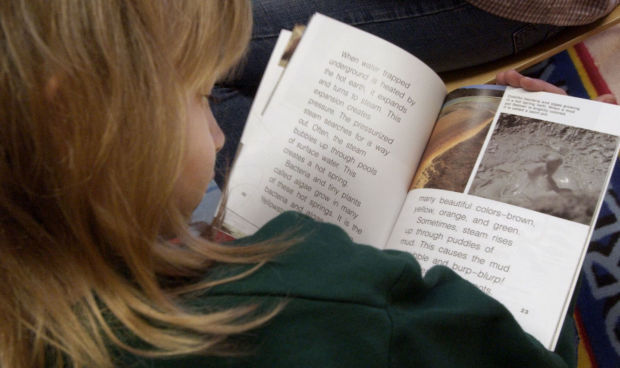PHOENIX — Making vouchers universally available to pay for all children to attend private and parochial schools would increase costs to the state and not result in savings — as the plan’s prime sponsor says, according to legislative budget analysts.
A new report by the Joint Legislative Budget Committee figures the state will spend an extra $13.9 million by 2020 if an estimated 2.6 percent of students move from traditional public schools to private schools.
If more than 2.6 percent of parents are interested in getting the $5,600 vouchers — formally called “empowerment scholarship accounts” — the hit to the state treasury would be higher. If it turns out that 5 percent of public school students want vouchers, for instance, the cost approaches $26.8 million.
That’s only part of the potential expense. The report estimates there would be 2,600 kindergartners who start out in private school and whose parents would take the vouchers to help defray their costs. Since they never attended public schools — and perhaps never intended to — there would be no savings in what would have been state aid.
The cost of providing vouchers for them would add an additional $10.6 million above what the state would otherwise pay to educate them in public schools, putting the total price tag by 2020 at $24.5 million, the report says.
But the costs for kindergartners alone could approach $21.6 million if more parents opt for vouchers, it adds.
Budget analysts also warn there are other aspects of the legislation that could further boost the number of students seeking vouchers.
Vote could be close
The report comes as SB 1491 to create universal vouchers by 2020 awaits a vote in the full Senate, and as the House is poised to vote on HB 2394, which has identical language.
Sen. Debbie Lesko, R-Peoria, is promoting the plan as a way to save money. She says it takes $9,529 to educate a typical child in Arizona public schools. That, she argues, makes the $5,600 voucher for a student without special needs a bargain.
But the budget analysis points out that her figure includes the federal money schools get, as well as what they raise from local taxpayers. When just the cost to the state is considered, vouchers are more expensive. That’s because, as the report points out, the average amount of state aid to public schools is about $800 less per student than the voucher.
The report will give new ammunition to foes who contend vouchers further drain dollars from a public school system that is inadequately funded.
Arizona is near the bottom of all states in the amount of aid it provides for students. It also ranks low in teacher pay, a factor that state schools superintendent Diane Douglas said causes 20 percent of new teachers to leave within the first year and another 20 percent to quit the second year.
Lesko said she will not comment on the report until she meets with the budget analysts who prepared it. But she said she will not abandon her legislation even if there is a net cost to the state budget.
She doesn’t think the report will doom the measure to political defeat. Even though she has promoted it as a way to save overall tax dollars, she said that’s not the only issue.
“I really believe in this program, in giving another choice to parents,” Lesko said.
The Senate vote could be close. While Republicans hold a 17-13 advantage, Sen. Kate Brophy McGee, R-Phoenix, already is opposed. That could leave Sen. Frank Pratt, R-Casa Grande, as the deciding vote. And Pratt said Wednesday that he has not yet made up his mind.
Growth since 2011
Vouchers were first approved in 2011 to help parents whose children with special needs could not get necessary services in public schools.
Foes sued, charging that vouchers violate a state constitutional provision barring public dollars from being used for religious worship or instruction.
But the state Court of Appeals said the money goes to the parents who decide how to spend the funds, making who ultimately gets the dollars irrelevant.
The judges said the vouchers do not result in the state encouraging the preference of one religion over another, or religion over atheism.
The court also rebuffed claims the program violates another constitutional provision that bars aid to parochial or private schools, saying the beneficiaries of the vouchers are the families, not the schools.
Since that time, lawmakers have expanded eligibility for vouchers. The list now includes children of parents on active military duty; foster children; all students in failing schools; and children living on Indian reservations.
That makes 186,100 students potentially eligible, according to the report.
Lesko noted that current law limits the number of vouchers to no more than one-half of one percent of the approximately 1.1 million students in public and charter schools, or about 5,500. But that cap goes away in 2020.





